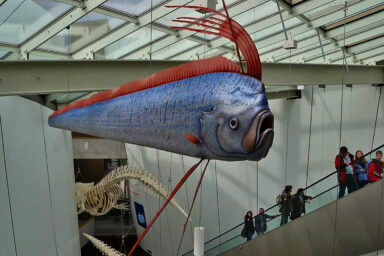Remote Learning Is Here to Stay — How Can We Make it Better?
What Will Happen to Border Wall Construction Under Biden? ; COVID-19 Is Reaching the Last Coronavirus-Free Nations ; and More Picks 11/19
What Will Happen to Border Wall Construction Under a Biden Presidency? (Reader Steve)
From the Arizona Republic: “Border advocacy and conservation groups are eagerly looking to Jan. 20, the date that Joe Biden will be sworn in as the 46th president. Within hours, they are hoping Biden will reverse numerous immigration and border security policies, chief among them the construction of physical barriers along the U.S.-Mexico border. … Biden has pledged to stop construction after he takes office in January. He told a panel of Black and Latino reporters in August that ‘there will not be another foot of wall constructed on my administration.’ Legal experts said his incoming administration will have large latitude. But some of the most vocal critics of border wall construction over the past four years told The Arizona Republic they would like to see Biden go a step further and consider the possibility of tearing down certain sections of the new barriers.”
Alaska Becomes Second State to Approve Ranked-Choice Voting (Judy)
From the Anchorage Daily News: “Alaska voters have approved a ballot measure that will make Alaska the second state in the nation to use ranked-choice voting in statewide elections. With an estimated 99.9% of votes counted statewide, Ballot Measure 2 has received the support of 50.55% of Alaska’s voters. … Starting with the 2022 election, the measure will merge the state’s two primary elections into one, and the top four vote-getters regardless of political party will advance to the general election. Some states have so-called ‘top two’ primaries. Alaska will be the only state with a ‘top four’ primary.”
COVID-19 Is Reaching the Last Coronavirus-Free Nations on Earth (Dana)
The author writes, “Eight months after the World Health Organization declared a global pandemic, COVID-19 is reaching the last places on Earth that remained untouched by the coronavirus. [Last] Wednesday, Vanuatu, a Pacific island nation about 1,200 miles northeast of Australia, reported its first COVID-19 case. Two other countries in the Pacific Ocean, the Marshall Islands and Solomon Islands, reported their first infections in October. In Samoa, workers who serviced a ship with COVID-19-positive crew members are in quarantine. By most estimates, just nine countries have not yet reported any COVID-19 cases.”
The Last Children of Down Syndrome (Bethany)
The author writes, “Down syndrome is frequently called the ‘canary in the coal mine’ for selective reproduction. It was one of the first genetic conditions to be routinely screened for in utero, and it remains the most morally troubling because it is among the least severe. It is very much compatible with life — even a long, happy life. The forces of scientific progress are now marching toward ever more testing to detect ever more genetic conditions. Recent advances in genetics provoke anxieties about a future where parents choose what kind of child to have, or not have. But that hypothetical future is already here. It’s been here for an entire generation.”
Scientists Are Just Sticking Platypuses Under Black Light (Dana)
The author writes, “Do you think platypuses glow under black light? Maybe that question has never once crossed your mind, and that’s fair, I suppose. It kind of sounds like a question a college freshman might ask you as you sit smoking a loosely packed joint in the warm glow of their dorm-room lava lamp. But, in fact, it’s the question a team of professional scientists has spent several years researching, and to which we now have a definitive answer. According to a paper published last month in the journal Mammalia, platypuses do in fact glow under black light. So there’s that! Why do they glow? Well, we don’t know.”



